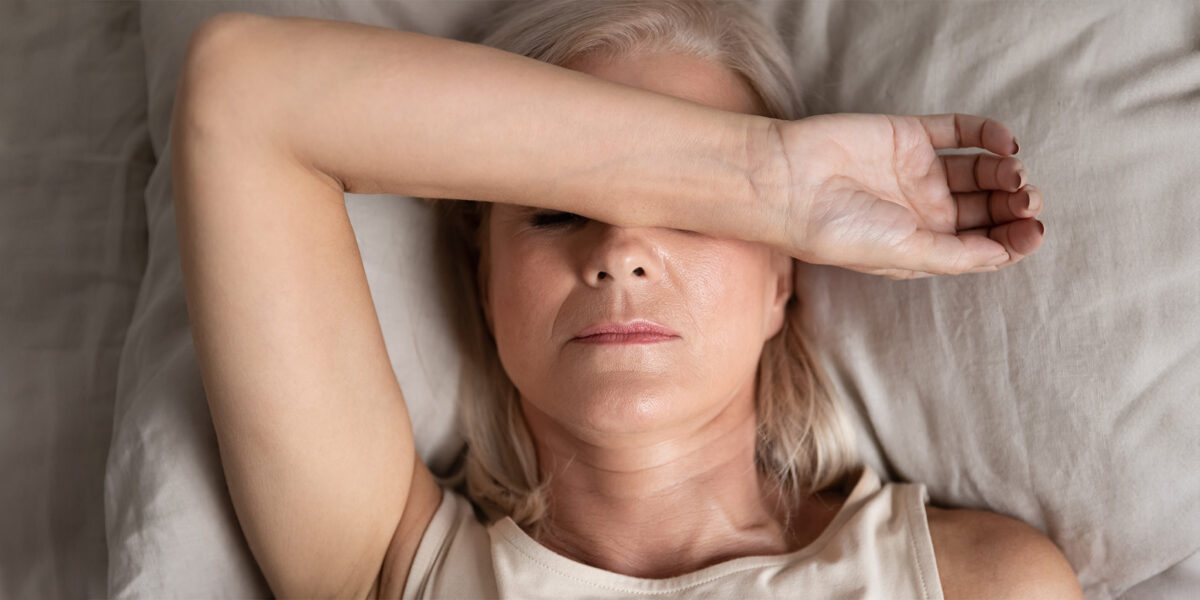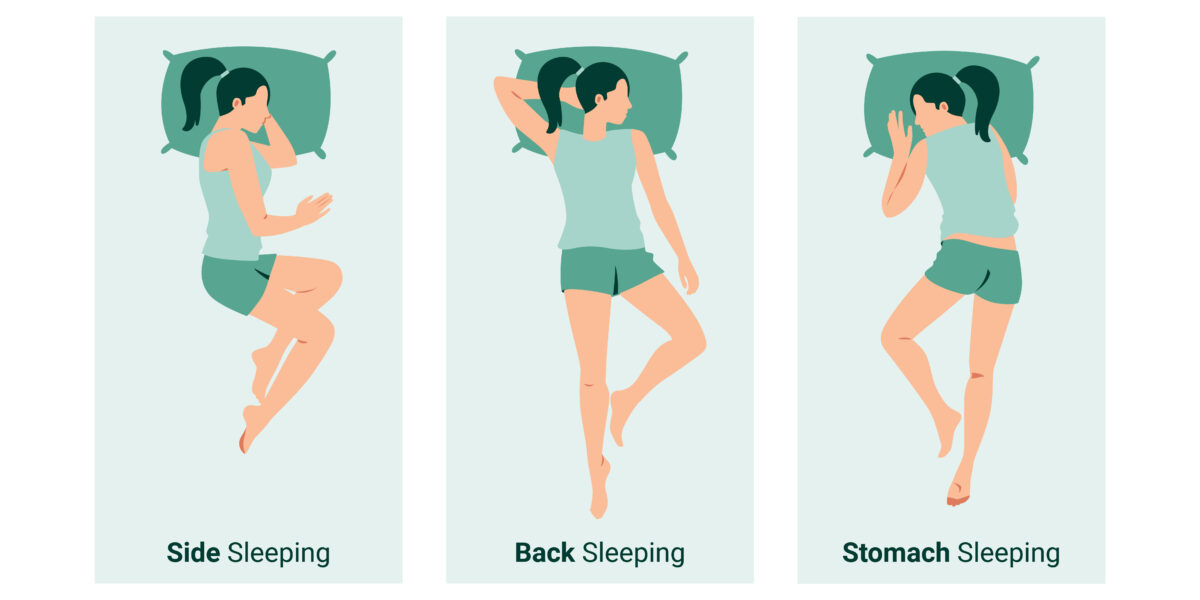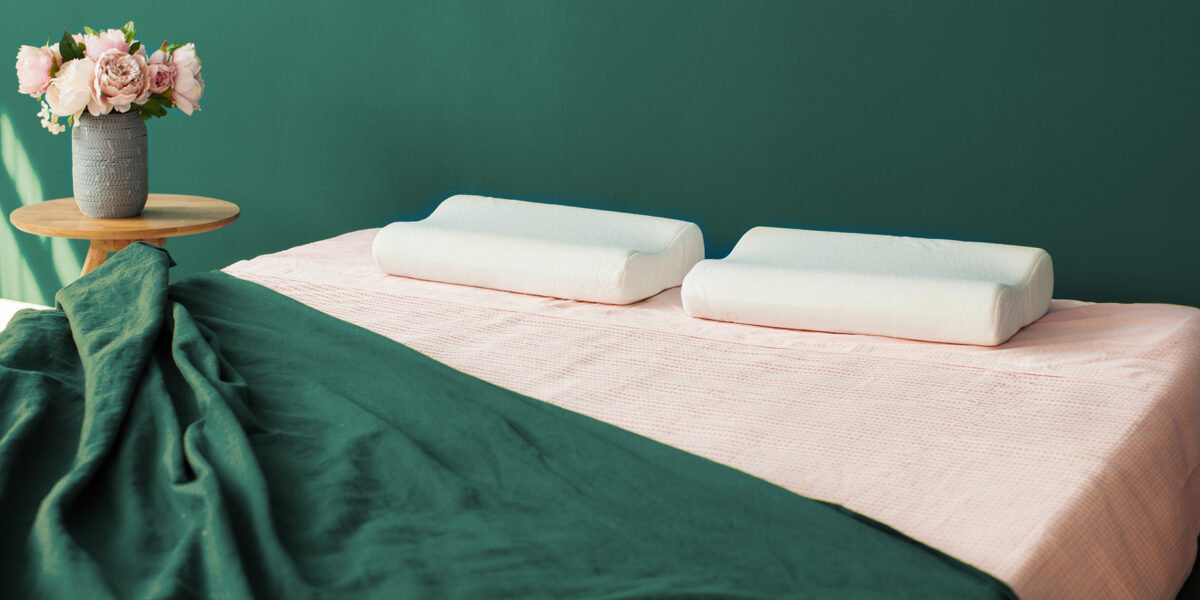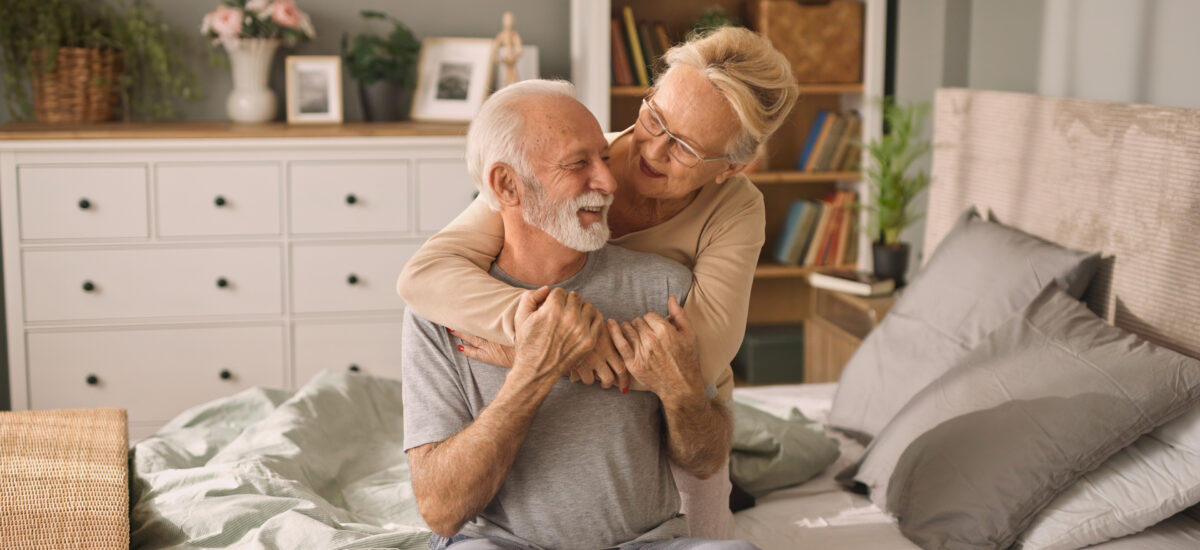Here’s how to sleep better with osteoporosis. Starting tonight!
There’s nothing quite like the feeling of a good night’s sleep—refreshing, rejuvenating, and utterly vital for your overall health. Conversely, the effects of poor sleep can be downright awful: mood swings, decreased productivity, and a compromised immune system. But did you know that the stakes are even higher? Emerging research suggests that not getting enough quality sleep might not just ruin your day—it could also be quietly undermining your bone health. It’s true…
Sleepless Nights Cause Osteoporosis
A groundbreaking study by the Women’s Health Initiative1, examined over 11,000 postmenopausal women to uncover how sleep affects bone health. After researchers adjusted for various factors like age, race, lifestyle habits, and medication use, a stark pattern emerged. Women who got only five hours of sleep or less each night had lower bone density than those who slept for seven hours or more.
“Good sleep habits are important for our overall health. But this study suggests that the same may be important for bone health,” said Dr. Andrea Singer, Chief Medical Officer of the National Osteoporosis Foundation.
These findings confirmed an earlier study that had suggested a causal connection between sleeplessness and osteoporosis. In 2016, the Hiroshima Sleep and Health Care Study 2 examined the sleeping patterns of 1,032 participants between the ages of 25-85 years of age. Adjusting for sex, age, race, BMI, smoking and alcohol use, the results showed that poor sleep quality may be associated with osteoporosis. Specifically, frequent sleep disturbances could be a contributing factor in the development of osteoporosis, according to the study’s authors.
This was also confirmed by a recent meta-analysis3 of studies performed by the University Of Colorado which highlighted a clear connection between sleep patterns and bone health. “Studies suggest that sleep and circadian disruptions such as night shift work, abnormal sleep durations and obstructive sleep apnea are detrimental to skeletal health,” said Dr. Christine Swanson, a professor at University Of Colorado.
And a separate meta-analysis 4 found those who enjoy 8 hours of uninterrupted sleep per night have a lower risk of osteoporosis than their sleep deprived counterparts.
But sadly. Not only do sleepless nights contribute to osteoporosis…
Osteoporosis Causes Sleepless Nights
One in three people aren’t getting enough sleep5. That’s according to The National Institutes of Health6. And that could be bad news for their bones. As noted above, many studies have demonstrated that sleeplessness may negatively affect bone health. However, the sleep-bone relationship may be bidirectional. That’s because osteoporosis and osteoporotic fractures can greatly influence sleep duration and quality.

The 2003 National Sleep Foundation Survey found that people with osteoporosis were 67% more likely to report getting less than 6 hours sleep per night7. Additionally, pain from fractures can make it difficult to fall asleep and often leads to waking up too early8. This creates a harmful cycle where poor sleep affects bone health and healing, which in turn can lead to more fractures and sleep problems.
But thankfully there’s a few time-tested strategies you can try tonight to ensure a more comfortable sleep.
Best Sleeping Position For Osteoporosis

A recent review of 4,186 peer-reviewed studies9 tried to find a link between sleep positions and spinal pain. And while the results of this research were inconclusive, it is worth noting how different sleep positions may impact bone health.
Side Sleeping
Sleeping on your side is a popular position, but it can lead to poor sleep quality. That’s according to a 2021 study10 in which researchers asked 53 participants to sleep in a variety of positions. The participants who slept on their sides experienced a reduced quality of sleep. That’s because this position often results in uneven pressure on your bones, which may cause discomfort. Additionally, placing an arm under your head can restrict blood flow and nerve function in that arm.
Back Sleeping
Back sleeping is a good choice for osteoporosis sufferers as it evenly distributes body weight and lessens pressure on specific areas, decreasing the likelihood of nighttime pain.
Stomach Sleeping
It’s a good idea to avoid sleeping on your stomach. This position puts pressure on the neck and lower back, potentially causing pain and poor posture over time.
But whichever position is best for you it’s always a good idea to…
Use A Pillow For Support

Orthopaedic knee pillows are a great way to improve the quality of your sleep, as they help alleviate pressure on your bones. For side sleepers, these pillows support proper spine alignment and reduce strain on the hips and lower back by keeping the legs apart. Additionally, knee pillows facilitate better circulation in the legs, which can minimize discomfort and aid in maintaining bone health.
If you prefer sleeping on your back, placing a pillow under your knees elevates your legs, thereby reducing stress on your spine and enhancing comfort. This setup not only helps in managing sleeping with pain but also contributes to maintaining a healthy posture during sleep.
Get A New Mattress
It might be time to get a new mattress. That’s according to researchers from Oklahoma State University. In a novel study11 –the first of its kind– 59 healthy participants were monitored while sleeping on their own, older mattresses (five years or older) and then on a new mattress, to contrast the effects. The results were clear:
- With a new mattress, study participants saw considerable improvements in reducing lower back discomfort and spine stiffness, as well as in the quality and comfort of their sleep. These positive changes occurred regardless of the participants’ age or weight. Additionally, individuals who initially reported no back or sleep problems also experienced significant gains.
- The study revealed that the age of participants’ original mattresses, which were five years old or older with an average age of 9.7 years, played a significant role in contributing to back stiffness.
- The study found that new mattresses offered both immediate and ongoing improvements in sleep. Participants reported progressively better sleep quality each week, which was directly linked to the use of new mattresses.
Nap Earlier In The Day (Or Not At All)
Daytime naps can be refreshing, but taking them too often or too late in the day can make it more difficult to fall asleep when bedtime arrives. In a study12 involving 62 young adults, researchers from The Journal Of Sleep Research looked at how taking naps might affect sleep quality. They found that people who napped often or took naps late in the day tended to have more broken sleep and didn’t sleep as well at night compared to those who napped less or earlier. Napping a lot or late can lead to trouble falling asleep and waking up more during the night.
The Magic Of Magnesium
A review of studies involving 7,582 participants13 found a link between magnesium and sleep quality. It helps people fall asleep faster, sleep longer, and feel less fatigued during the day. Particularly in older adults, magnesium supplements have been shown to assist with quicker sleep onset and to prevent premature awakenings.
The exact mechanisms by which magnesium enhances sleep aren’t fully understood yet. However, it’s believed that magnesium may influence several brain chemicals involved in sleep regulation. These include NMDA and GABA, which affect how relaxed or sleepy we feel, as well as melatonin, renin, and cortisol, all of which play roles in our sleep cycles.
Supplement Fact
Magnesium is a key component of AlgaeCal, a unique plant-based calcium. AlgaeCal contains 16 minerals and vitamins clinically supported to increase bone density. In fact, AlgaeCal is the only calcium supplement in the world clinically supported to increase bone density.
Takeaways
Sleep and Osteoporosis Connection: Research indicates that poor sleep can worsen bone health, with studies showing that less than six hours of sleep may lead to lower bone density. Conversely, osteoporosis and related pain can disrupt sleep, creating a vicious cycle of poor health and sleep issues.
Sleeping Positions: Different sleeping positions have varied effects on bone health. Side sleeping can cause uneven pressure and discomfort, back sleeping is ideal for even weight distribution and reduced pressure, and stomach sleeping should be avoided due to potential strain on the back and neck.
Supportive Bedding: Using orthopedic knee pillows can improve sleep quality by alleviating pressure on the bones, aiding circulation, and maintaining proper spine alignment. Additionally, upgrading to a new mattress can significantly enhance sleep quality, reduce back discomfort, and support spine health.
Importance of Nap Timing: Daytime naps can be beneficial but should be taken earlier in the day to avoid disrupting nighttime sleep. Frequent or late naps can lead to sleep fragmentation.
Role of Magnesium: Magnesium supplements can help improve sleep quality, especially in older adults, by aiding faster sleep onset and preventing early wake-ups.
FAQS
What is the best sleep position if you have osteoporosis?
The best sleep position for individuals with osteoporosis is lying on your back. This position distributes body weight evenly, reduces pressure on the bones, and minimizes the risk of nighttime discomfort, making it ideal for maintaining spine health.
Is lying down bad for osteoporosis?
Lying down is not inherently bad for osteoporosis, but the position in which you lie down matters. Back sleeping is beneficial, while stomach sleeping should be avoided due to the potential strain it can place on the spine and neck.
What kind of pillow is best for osteoporosis patients?
Orthopaedic knee pillows are recommended for osteoporosis patients, especially if they prefer side sleeping. These pillows help maintain proper spine alignment and reduce strain on the hips and lower back. For back sleepers, a pillow under the knees can help elevate the legs and further reduce spinal stress.





Angelica
September 11, 2024 , 4:30 pmQuestion more than a comment. How much extra magnesium is safe to take when you are already taking 4 algae cal capsules per day? Best time to take magnesium.
Thank you.